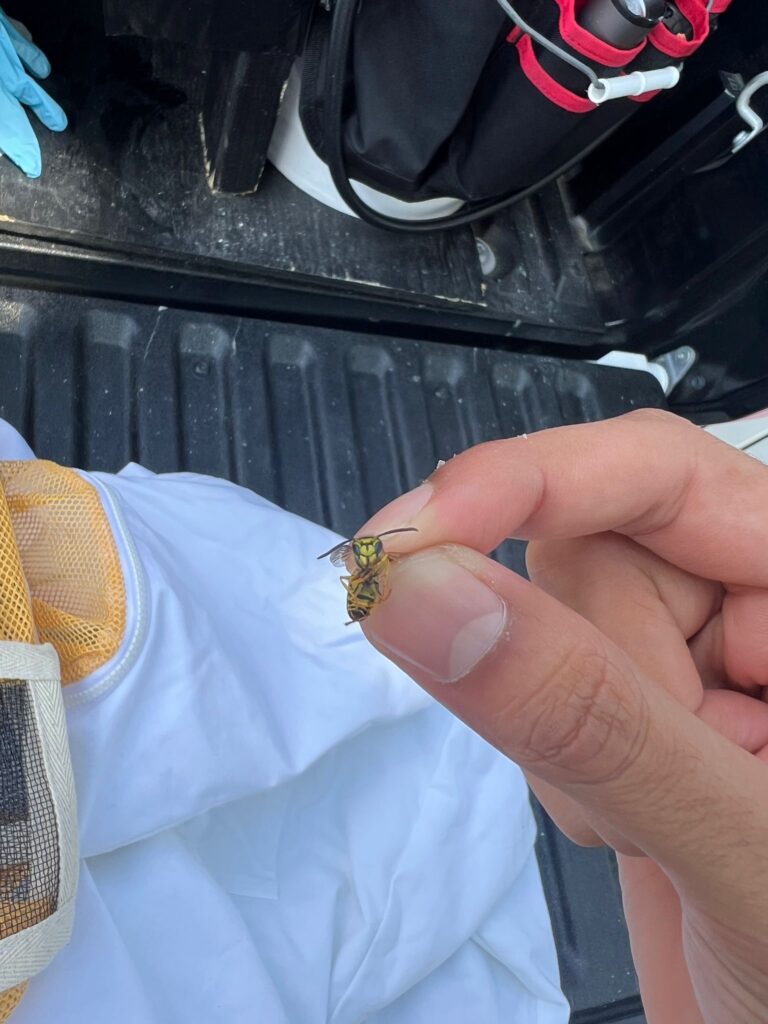
Wasps Control in New Hyde Park: Understanding Their Behavior
Common wasp species include yellow jackets, hornets, and paper wasps, each playing different roles within their colonies, such as queens, workers, and drones. Wasp nests can be found both outdoors and indoors, often in sheltered areas like eaves, attics, or underground. The lifecycle of a wasp from egg to adult varies by species and environment.
What are the best methods to follow for effective wasp control?
A simple method for wasp removal in New Hyde Park is to use soapy water. You can spray directly on wasp nests during the evening when they are less active. The soap clogs their breathing pores, leading to suffocation. Another natural repellent is clove, geranium, and lemongrass oil, which can be combined and sprayed around outdoor living areas to deter wasps.
DIY techniques for wasp control and removal in New Hyde Park:
Home-made traps are useful for catching and controlling wasps. You can create a trap using a two-liter bottle by cutting off the top and inverting it inside the lower half to form a funnel. Add a sweet liquid to attract the wasps. Once they enter the trap, they can’t escape. Vinegar is another potent repellent that disrupts the wasps’ scent trails. You can spray it around the perimeter of your home to prevent their entry.
Cucumber slices placed around your patio or balcony can deter wasps. Their natural acidic properties are repulsive to wasps. Hanging decoy nests can also prevent new colonies. Wasps are territorial and typically avoid areas with existing nests. Introducing plants like eucalyptus, thyme, and citronella around your home can help keep wasps away. These plants have natural insect-repellent properties.
When is the right time to hire a qualified pest controller?
If you have persistent or severe wasp problems, it may be necessary to hire a professional exterminator in New Hyde Park. A skilled exterminator can effectively and efficiently address the root cause of the issue. They identify the species of wasps and offer customized treatments. These treatments are both more effective and specific to the type of wasp. Look for an exterminator with a proven track record of dealing with wasp problems. Ideally, they should offer treatments that are safe for both pets and the environment. A detailed plan of their approach to eliminating the wasps is also essential.


